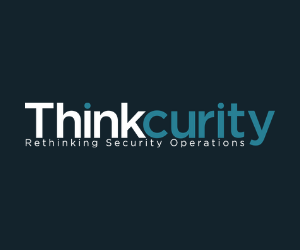When it comes to guard training, having all training digital has helped private security companies maintain their operations with utmost efficiency. We’ve seen digitized training help security companies:
- Keep track of state mandated guard licenses
- Provide mandatory critical event training
- Train on general or client specific SOPs
- Help ease the burden of officer on-boarding
Yet, when it comes to maintaining state regulations, there remains a challenge in mitigating operational risk across state lines. One thing is certain — there are no federal guidelines for private security, which is why it is largely left to each state to create and mandate their own regulations.
For example, in California, anyone performing private security duties, including retired and off-duty law enforcement, must be registered with the Bureau of Security and Investigative Services (BSIS). Security company owners must also ensure the accuracy of all employee licenses.
How this is a problem for private security companies?
- Failure to keep track of all guard licenses can make you reliable for state noncompliance issues.
- Not knowing the background of who you’re hiring puts your business and workers’ safety at risk.
- Inefficient training protocols can put a strain on supervisory resources and can be a challenge when upholding different state regulations.
When it comes to establishing proper security company training standards, factors for maintaining criminal record checks and guard licenses change the moment you cross state lines, despite dealing with the same risks and threats that face all security companies.
Let’s look into 3 areas where digital training modules benefit contract security and can help ease that burden.
- Training modules can help security companies uphold SOPs specific to state regulations
- They can organize critical and emergency response methods for supervisors and guards
- They can improve overall guard retention and accountability for an overall improvement to your operations
How do training modules help uphold security company SOPs?
Standard Operating Procedures (SOPs) are a private security company’s go-to resource for defining the who, what, where, when, and how of a procedure. Yet, SOPs are more than just guides — they’re the basis for upholding business continuity and for mitigating risk across all areas of business.
When it comes to digital training modules, especially those mandated by states, having your company’s SOPs accessible and accurate is key. Training modules act as a resource hub for your business where your guards and supervisors can have access to training documentation and courses when needed. Training modules are key to upholding SOPs and ensuring your guards respond to incidents, critical events, or general procedures appropriately.
If you haven’t transitioned to digital training modules, here are the reasons why you should get on board before you risk liabilities.
What can security companies use training modules for?
With digital training modules, it’s important to find a solution that’s configurable. This means security companies can take existing general guard procedures and establish guard training for daily activities or supervisor training on how to track and monitor guards.
Comprehensive digital training modules are configurable to fit security company needs and state regulations and can help supervisors identify expiring guard certifications ahead of time by automatically sending alerts to guards and stakeholders.
Configurable training modules are best for emergencies and critical event response. This is especially true when security companies work to maintain new SOPs on health screenings and regulations for remote workers, as with the new normal.
How can digitizing your training improve your operations?
When a training module is digital, it can be configurable. This means security companies can fully adapt their training per state regulations plus adapt to uphold their business continuity plans. Comprehensive configurable training module will allow security companies to:
- Select what type of training (one time only or recurring)
- Select what skill the training is related to (firearms, concierge service, etc.)
- Indicate if training needs to be retaken periodically
- Add a time-based reminder for guards to complete the course
- Add a grace period to worker cards before they expire
- Link mandatory trainings to security posts
Final Thoughts
The failure to keep track of guard training records can make you reliable for noncompliance issues and puts your business at unnecessary risk. Using digital training modules ensures your company’s SOPs are upheld and ensures your guards and supervisors are prepped for any critical response.



